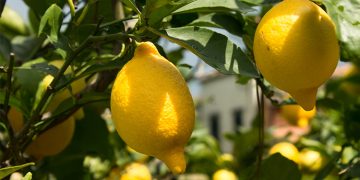When it comes to food innovation, Sweden’s southernmost province is where global necessity is driving game changing breakthroughs and food solutions. Challenges like climate change, feeding a growing world population, water scarcity and food waste are just some of the issues at the top of the agenda for food innovators in the region who are finding solutions for problems across the entire food value chain. From production and distribution to consumption and recycling, this is where the food system of the future is being invented today.
Jens Almqvist, Business Designer at the food-focused Krinova Incubator and Science Park in Kristianstad, northeast Skåne, says climate is the key focus of Skåne’s foodtech ecosystem. “Food is heavily put under the microscope when we’re talking about climate change,” he explains, noting rising demand for alternatives to traditional growing, processing, and packaging methods.
The Skåne region is home to a wealth more than 100 innovative foodtech companies. These include start-ups and researchers (as well as established companies, like Tetra Pak, Ecolean, and Oatly) who are developing novel food solutions in response to market conditions, and they are seeking investors and partners for collaboration.
From alternative proteins to advanced agrotechnology
Invest in Skåne has created a snapshot of the region’s thriving food tech scene by profiling Skåne-based foodtech companies looking for global investment and collaboration. So far, there are over 30 companies listed in the catalogue, who are working in areas from alternative proteins, beverages, and circular bio economy, to digitalisation, packaging, technology provision and water.
According to Olof Tedin, Business Development Manager at Invest in Skåne, companies in the Skåne region developing “climate-smart food” are focusing on alternative proteins based on plants, fungi, or lab-grown meats, as well as sustainable food solutions such as circular bioeconomy, which upcycles waste products or uses waste-reducing solutions.
“It’s all about using resources in a way that’s more efficient but also cheaper and easier to produce,” explains Tedin, “whether it’s green proteins or lab-based fish farms with a contained circular flow.”
Functional food is another area of development – food products, mostly in the beverage category, designed to achieve positive health effects and which are fortified with probiotics, minerals, fibre and vitamins.
Increasing crop yields is popular as well. “Companies here are working across the entire spectrum of agrotechnology, like AI and robotics-based solutions, to increase yields,” he adds.
For Almqvist, such application of technology from other sectors to food is increasing.
“Companies looking at pairing food challenges with tech, maybe derived from other areas, should look into Skåne” he says. Startups are also pivoting away from launching consumer-facing brands. “Ithink we’re going to see more integration and more B2B business models, ” he explains.




















